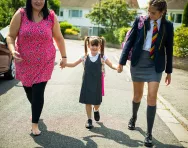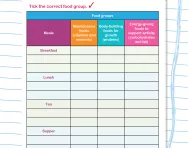Important update from TheSchoolRun
For the past 13 years, TheSchoolRun has been run by a small team of mums working from home, dedicated to providing quality educational resources to primary school parents. Unfortunately, rising supplier costs and falling revenue have made it impossible for us to continue operating, and we’ve had to make the difficult decision to close. The good news: We’ve arranged for another educational provider to take over many of our resources. These will be hosted on a new portal, where the content will be updated and expanded to support your child’s learning.
What this means for subscribers:
- Your subscription is still active, and for now, you can keep using the website as normal — just log in with your usual details to access all our articles and resources*.
- In a few months, all resources will move to the new portal. You’ll continue to have access there until your subscription ends. We’ll send you full details nearer the time.
- As a thank you for your support, we’ll also be sending you 16 primary school eBooks (worth £108.84) to download and keep.
A few changes to be aware of:
- The Learning Journey weekly email has ended, but your child’s plan will still be updated on your dashboard each Monday. Just log in to see the recommended worksheets.
- The 11+ weekly emails have now ended. We sent you all the remaining emails in the series at the end of March — please check your inbox (and spam folder) if you haven’t seen them. You can also follow the full programme here: 11+ Learning Journey.
If you have any questions, please contact us at [email protected]. Thank you for being part of our journey it’s been a privilege to support your family’s learning.
*If you need to reset your password, it will still work as usual. Please check your spam folder if the reset email doesn’t appear in your inbox.
Childhood obesity – what you need to know

As many as three or four children in a typical UK school class could be affected by childhood obesity. And the future is not looking too healthy either, with the BMA estimating that if current trends continue, at least one fifth of boys and one third of girls will be obese by 2020.


Start a unique learning programme!
- Weekly programme for each school year
- Worksheets sent direct to your inbox
- Keeps your child's learning on track
What is child obesity?
The term ‘obesity’ refers to a person’s physical state of being seriously overweight for their age and height. Children’s health expert and author of Child Obesity: A Parent’s Guide, Judith Manson explains, “Childhood obesity is not a disease which strikes at random; it’s a condition that can occur because of particular circumstances and it’s a condition that can be very successfully treated and prevented from recurring.”
Childhood obesity can be brought on by a range of factors. They are:
- An unhealthy diet. Fast foods, processed foods, fizzy sugary drinks, constant snacking on junk foods, and a lack of fresh fruit and vegetables can all contribute.
- Lack of exercise. A sedentary lifestyle, with little physical exertion to burn off the excess calories consumed can lead to a child becoming obese.
- Genetics. There are a number of rare genetic conditions which can cause childhood obesity. However, if parents are aware the child may have inherited this from them, then every precaution should be taken to ensure obesity doesn’t manifest itself in the child.
- Home lifestyle. As a parent you are a role model for your children. Setting good examples with eating habits and physical activity can affect your child’s weight.
The health risks
Unfortunately, childhood obesity carries some very real. There are short term difficulties, such as tooth decay from high sugar diets, fungal infections under excess flaps of skin, and digestion problems.
However, there are also longer term illnesses which can lead to serious health problems. Research has shown that obese children are at a higher risk of hardened or blocked arteries, high blood pressure, and type II diabetes. As adults they will be more at risk from heart attacks and bowel cancer. The excess weight can also put extra pressure on developing joints and bones, leading to difficulties with breathing, vision, and possibly causing chronic aches and pains.
As with adults, a child who is obese can also suffer from psychological problems, such as low self-esteem, depression, and lack of confidence.
Tackling childhood obesity
- If you’re worried about your child’s weight visit a GP who will recommend the right course of action. They will also refer your child to a dietician who can give expert advice about a healthy eating plan.
- Talk to your child’s teacher about what can be done in school.
- Start looking at your child’s eating habits and diet. Increase their fresh fruit and vegetable intake – five a day is the recommended daily allowance – and reduce fat intake.
- Sit down to regular family mealtimes. Discuss what healthy foods your child likes and use them in recipes.
- Avoid sugary drinks and processed foods.
- Be a positive role model. Don’t expose your child to negativity about healthy eating. Give plenty of praise and encouragement to boost their motivation.
- Make sure your child is getting plenty of exercise. Go on walks and play physical outdoor games as a family.








